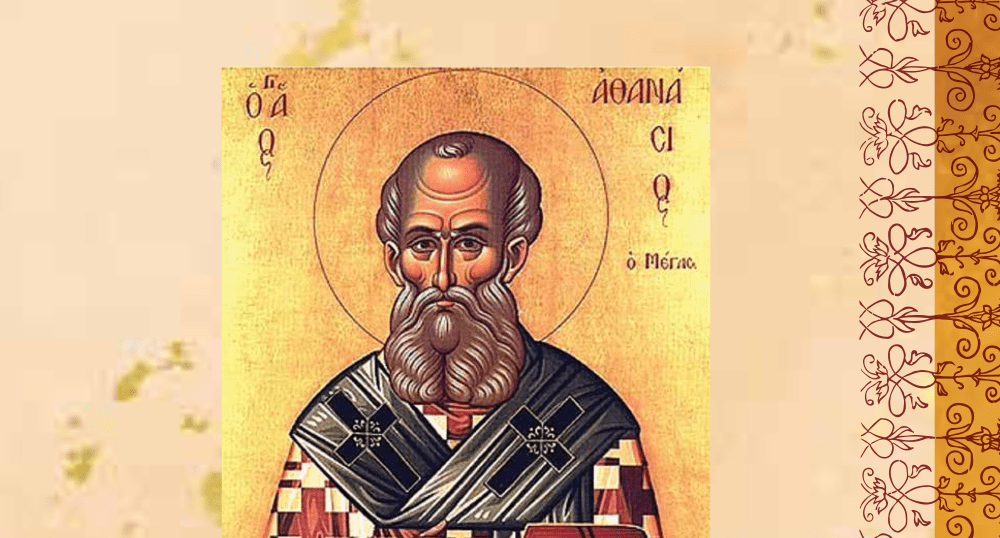BY DEVIN O’DONNELL
Pro Vita Mundī
In June, classical Christian educators from across the country and beyond (including people from eastern Europe) came to gather together in Pittsburgh for our annual Repairing the Ruins conference. The excellent workshops and good fellowship notwithstanding, our plenary speakers such as Dr. Albert Mohler, Dr. Ben Carson, and Rosaria Butterfield rallied and inspired administrators, teachers, and parents alike. The theme of this year’s conference was Athanasius Contra Mundum.
Many of us know Athanasius as the inexorable saint who defended the Incarnation, refuting objections from both the Jews and the Gentiles and thereby providing one of the most formative understandings of what it means to be human. He lived during the turbulent time of the fourth century, while the theological dust was still settling from the ecumenical Council of Nicea. His writings include:
• On the Incarnation (a masterpiece of theology)
• The Life of Anthony (a “best selling” biography of Saint Anthony without which we might not have the likes of Augustine or Benedict)
• The Athanasian Creed (a statement of belief that defends the Trinity)
• Several missionary letters (which are still read today)
In his famous introduction to Athanasius’ On the Incarnation, C. S. Lewis notes:
[Athanasius] stood for the Trinitarian doctrine, “whole and undefiled,” when it looked as if all the civilised world was slipping back from Christianity into the religion of Arius—into one of those “sensible” synthetic religions which are so strongly recommended today and which, then as now, included among their devotees many highly cultivated clergymen. It is his glory that he did not move with the times; it is his reward that he now remains when those times, as all times do, have moved away.
Dead things go with the stream, as Chesterton observed, but only living things can go against it. Athanasius was indeed alive in faith and virtue, and he was formidable against the heresies of his time. That is why he earned the title, Contra Mundum.
But we should not forget that the reason Athanasius could stand against the world was that he stood for a positive vision of what it means to be human. His writings do not just explain the ideas coming from the Council of Nicea, they give us a true picture of mankind—a picture we, and our children, need as much today as they needed it in the fourth century.
The sad reality is that we now live in “clown world” (mundus fatuus), and it doesn’t take much fidelity these days to be against some new prevailing zeitgeist. But there is a sense in which for us, as for Athanasius, “contra” is not enough. We can’t just be “against bad things.” We must also be for some positive and substantive vision of the Good.
So how can we build a community of learners who are for the good of God’s created world, who live that out in their homes and schools, and who cultivate an attractive and beautiful expression of delighting in God’s will and walking in His ways? If we define the Christian life for our children as a fundamentally negative experience that is primarily based in renunciation, this will not be enough to sustain a strong faith in the Lord. Our children will either despair or be captivated by the culture’s sinful version of fun. Defining life as “contra” will not sustain us in hard times. A real love for Christ is a begetting, a for, kind of love that bears fruit in this world. There is a time to resist, but resistance comes out of a love for something better, for Christ and His Kingdom.
The question for us to consider is this: How can we imitate Athanasius, and lead the next generation in a way that is in tune with God’s created order and founded on a Christian vision of culture that is “for the life of the world” (pro vita mundī)?
You might say that the answer to this question is our raison d’etre at ACCS, our reason for being. We seek to partner with classical Christian schools so that they can, in turn, successfully partner with their parents to pass on a way of life. We are committed to furthering Christ and His Kingdom, conserving the classical tradition, and promoting the standards of excellence for classical Christian schools. ✤
 DEVIN O’DONNELL is the ACCS Director of Membership and Publishing.
DEVIN O’DONNELL is the ACCS Director of Membership and Publishing.









